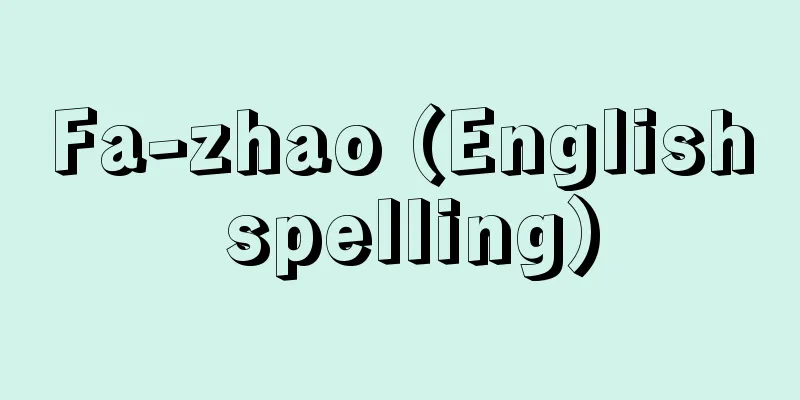Apprentice - Decchi

|
In the Edo period, young people indentured to merchants or craftsmen From the age of about 10, they were assigned to odd jobs and ran errands, and were given only a shikishi (clothing) and pocket money twice a year, during the Bon and New Year holidays, without pay. There were restrictions such as not drinking alcohol, not smoking, and not wearing cotton clothes or haori coats. Some were promoted to clerks at the early age of 17 or 18. Source: Obunsha Japanese History Dictionary, Third Edition About Obunsha Japanese History Dictionary, Third Edition |
|
江戸時代,商家・職人に年季奉公した年少者 10歳前後で雑役・走り使いに従事し,無給で年2回盆・正月に仕着 (しきせ) (衣服)と小遣い銭をもらうのみであった。禁酒禁煙,綿服,羽織着用禁止などの制限があり,早い者は17〜18歳で手代に昇格した。 出典 旺文社日本史事典 三訂版旺文社日本史事典 三訂版について 情報 |
Recommend
Ibn Killis
…His reign was the period when the Fatimid dynast...
Digesta; Pandectae
The Code, which has the greatest content and the g...
Danger
…In the early days, stage plays were broadcast as...
Customary law - Kanshuuho (English spelling) customary law
A type of unwritten law. A repetition of a certai...
Pragmatische Sanktion (English spelling)
...After the death of his brother, Holy Roman Emp...
Taketoki Kikuchi
Year of death: Masayoshi 2/Genkō 3.3.13 (1333.4.27...
Mikumo [town] - Mikumo
An old town in Ichishi County, in the central east...
induction
…from the Greek word epigōgē and the Latin word i...
Orokoro tribe
…Many masks have their own origin myths. Among th...
Envoys to the Tang Dynasty
Official envoys were sent from Japan to the Tang ...
Emergency Order - Emergency Order
Under a parliamentary system, an order is issued ...
Onioshidashi - Onioshidashi
The name of the lava distributed on the northern ...
machinery bruit
…The murmur of an aneurysm is a soft, short systo...
Consolidated financial statements
Financial statements prepared by treating a corpo...
Siniperca
…A general term for freshwater fish belonging to ...









